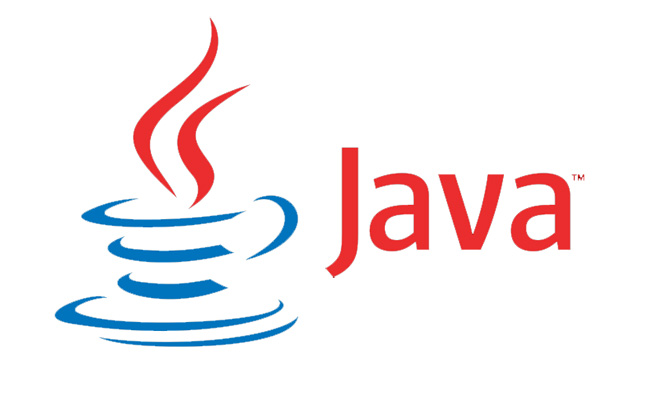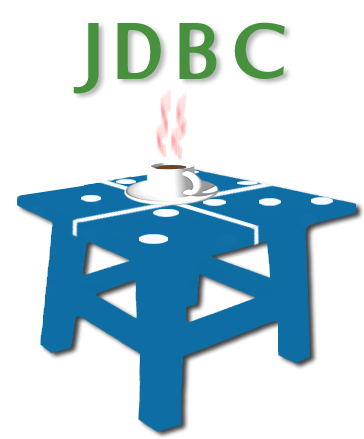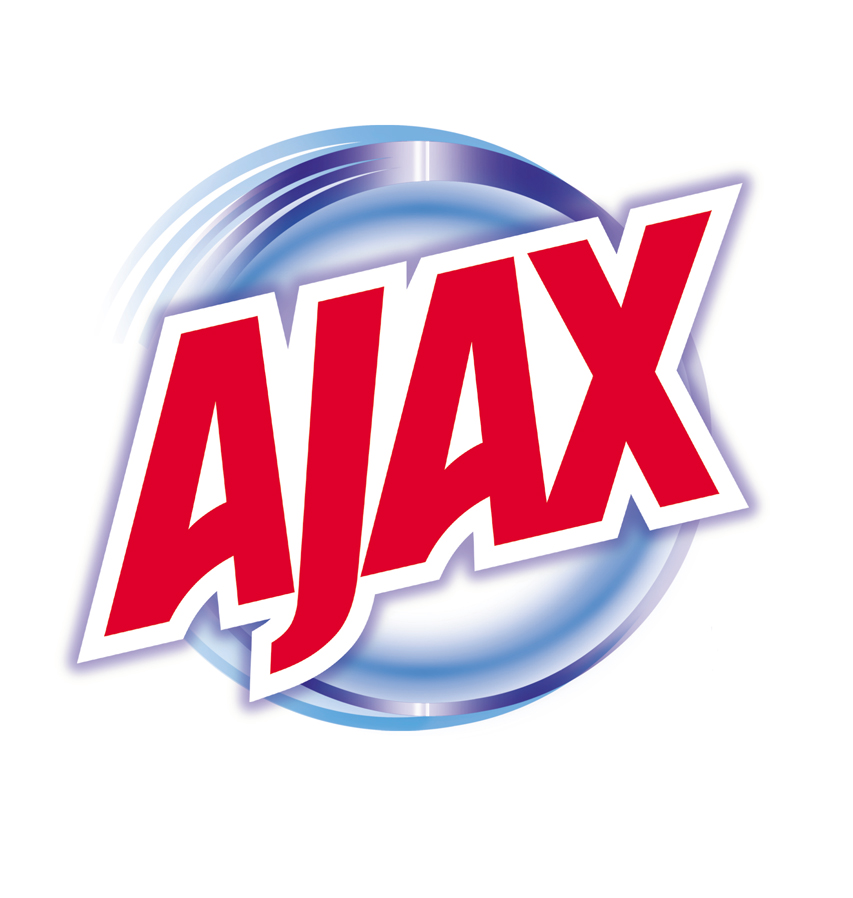OPERATING SYSTEM VIVA QUESTIONS AND INTERVIEW QUESTIONS
3/18/11Posted by
Fulto
0 Comments
Labels:
B.TECH VIVA Questions
JAVA VIVA QUESTIONS AND INTERVIEW QUESTIONS
Posted by
Fulto
Question: What is a compilation unit?
Answer: A compilation unit is a Java source code file.
Question: What restrictions are placed on method overriding?
Answer:: Overridden methods must have the same name, argument list, and return type.
The overriding method may not limit the access of the method it overrides.
The overriding method may not throw any exceptions that may not be thrown by the overridden method.
Question: How can a dead thread be restarted?
Answer: A dead thread cannot be restarted.
Question: What happens if an exception is not caught?
Answer: An uncaught exception results in the uncaughtException() method of the thread's ThreadGroup being invoked, which eventually results in the termination of the program in which it is thrown.
Question: Which arithmetic operations can result in the throwing of an ArithmeticException?
Answer: Integer / and % can result in the throwing of an ArithmeticException
Question: Can an abstract class be final?
Answer: An abstract class may not be declared as final
Question: What happens if a try-catch-finally statement does not have a catch clause to handle an exception that is thrown within the body of the try statement?
Answer: The exception propagates up to the next higher level try-catch statement (if any) or results in the program's termination
Question: What is numeric promotion?
Answer: Numeric promotion is the conversion of a smaller numeric type to a larger numeric type, so that integer and floating-point operations may take place. In numerical promotion, byte, char, and short values are converted to int values. The int values are also converted to long values, if necessary. The long and float values are converted to double values, as required
Question: What is the difference between a public and a non-public class?
Answer: A public class may be accessed outside of its package. A non-public class may not be accessed outside of its package.
Question: To what value is a variable of the boolean type automatically initialized?
Answer: The default value of the boolean type is false
Question: Can try statements be nested?
Answer: Yes
Question: What is the difference between the prefix and postfix forms of the ++ operator?
Answer: The prefix form performs the increment operation and returns the value of the increment operation. The postfix form returns the current value all of the expression and then performs the increment operation on that value.
Question: What is the purpose of a statement block?
Answer: A statement block is used to organize a sequence of statements as a single statement group
Question: What is a Java package and how is it used?
Answer: A Java package is a naming context for classes and interfaces. A package is used to create a separate name space for groups of classes and interfaces. Packages are also used to organize related classes and interfaces into a single API unit and to control accessibility to these classes and interfaces.
Question: What modifiers may be used with a top-level class?
Answer: A top-level class may be public, abstract, or final.
Question: What are the Object and Class classes used for?
Answer: The Object class is the highest-level class in the Java class hierarchy. The Class class is used to represent the classes and interfaces that are loaded by a Java program.
Question: How does a try statement determine which catch clause should be used to handle an exception?
Answer: When an exception is thrown within the body of a try statement, the catch clauses of the try statement are examined in the order in which they appear. The first catch clause that is capable of handling the exception is executed. The remaining catch clauses are ignored.
Question: What are synchronized methods and synchronized statements?
Answer: Synchronized methods are methods that are used to control access to an object. A thread only executes a synchronized method after it has acquired the lock for the method's object or class. Synchronized statements are similar to synchronized methods. A synchronized statement can only be executed after a thread has acquired the lock for the object or class referenced in the synchronized statement.
Question: What is the difference between an if statement and a switch statement?
Answer: The if statement is used to select among two alternatives. It uses a boolean expression to decide which alternative should be executed. The switch statement is used to select among multiple alternatives. It uses an int expression to determine which alternative should be executed.
Question: What is the diffrence between inner class and nested class?
Answer: When a class is defined within a scope od another class, then it becomes inner class.
If the access modifier of the inner class is static, then it becomes nested class.
Question: Diffrence between JRE And JVM AND JDK
Answer: The "JDK" is the Java Development Kit. I.e., the JDK is bundle of software that you can use to develop Java based software. The "JRE" is the Java Runtime Environment. I.e., the JRE is an implementation of the Java Virtual Machine which actually executes Java programs. Typically, each JDK contains one (or more) JRE's along with the various development tools like the Java source compilers, bundling and deployment tools, debuggers, development libraries, etc.
Question: Why is not recommended to have instance variables in Interface
Answer: By Default, All data members and methods in an Interface are public. Having public variables in a class that will be implementing it will be violation of the Encapsulation principal. I hope that's pretty ok.. If anybody has a better framed answer. U r welcome at reema_gupta@intersolutions.stpn.soft.net
Question: Can there be an abstract class with no abstract methods in it?
Answer: Yes
Question: Can an Interface be final?
Answer: No
Question: Can an Interface have an inner class?
Answer: Yes public interface abc { static int i=0; void dd(); class a1 { a1() { int j; System.out.println("in interfia"); }; public static void main(String a1[]) { System.out.println("in interfia"); } } }
Question: Can we define private and protected modifiers for variables in interfaces?
Answer: No
Question: What are some alternatives to inheritance?
Answer: Delegation is an alternative to inheritance. Delegation means that you include an instance of another class as an instance variable, and forward messages to the instance. It is often safer than inheritance because it forces you to think about each message you forward, because the instance is of a known class, rather than a new class, and because it doesn't force you to accept all the methods of the super class: you can provide only the methods that really make sense. On the other hand, it makes you write more code, and it is harder to re-use (because it is not a subclass).
Question: Why isn't there operator overloading?
Answer: Because C++ has proven by example that operator overloading makes code almost impossible to maintain. In fact there very nearly wasn't even method overloading in Java, but it was thought that this was too useful for some very basic methods like print(). Note that some of the classes like DataOutputStream have unoverloaded methods like writeInt() and writeByte().
Question: What does it mean that a method or field is "static"?
Answer: Static variables and methods are instantiated only once per class. In other words they are class variables, not instance variables. If you change the value of a static variable in a particular object, the value of that variable changes for all instances of that class.
Static methods can be referenced with the name of the class rather than the name of a particular object of the class (though that works too). That's how library methods like System.out.println() work. out is a static field in the java.lang.System class.
Question: How do I convert a numeric IP address like 192.18.97.39 into a hostname like java.sun.com? (Networking)
Answer: String hostname = InetAddress.getByName("192.18.97.39").getHostName();
Question: Diffrence between JRE And JVM AND JDK
Answer: Java Runtime Environment is used to excute through browser. JVM is used to execute class file.
Question: Why do threads block on I/O?
Answer: Threads block on i/o (that is enters the waiting state) so that other threads may execute while the i/o Operation is performed.
Question: What is synchronization and why is it important?
Answer: With respect to multithreading, synchronization is the capability to control the access of multiple threads to shared resources. Without synchronization, it is possible for one thread to modify a shared object while another thread is in the process of using or updating that object's value. This often leads to significant errors.
Question: Is null a keyword?
Answer: The null value is not a keyword.
Question: Which characters may be used as the second character of an identifier,but not as the first character of an identifier?
Answer: The digits 0 through 9 may not be used as the first character of an identifier but they may be used after the first character of an identifier.
Question: What modifiers may be used with an inner class that is a member of an outer class?
Answer: A (non-local) inner class may be declared as public, protected, private, static, final, or abstract.
Question: How many bits are used to represent Unicode, ASCII, UTF-16, and UTF-8 characters?
Answer: Unicode requires 16 bits and ASCII require 7 bits. Although the ASCII character set uses only 7 bits, it is usually represented as 8 bits. UTF-8 represents characters using 8, 16, and 18 bit patterns. UTF-16 uses 16-bit and larger bit patterns.
Question: What are wrapped classes?
Answer: Wrapped classes are classes that allow primitive types to be accessed as objects.
Question: What restrictions are placed on the location of a package statement within a source code file?
Answer: A package statement must appear as the first line in a source code file (excluding blank lines and comments).
Question: What is the difference between preemptive scheduling and time slicing?
Answer: Under preemptive scheduling, the highest priority task executes until it enters the waiting or dead states or a higher priority task comes into existence. Under time slicing, a task executes for a predefined slice of time and then reenters the pool of ready tasks. The scheduler then determines which task should execute next, based on priority and other factors.
Question: What is a native method?
Answer: A native method is a method that is implemented in a language other than Java.
Question: What are order of precedence and associativity, and how are they used?
Answer: Order of precedence determines the order in which operators are evaluated in expressions. Associatity determines whether an expression is evaluated left-to-right or right-to-left
Question: What is the catch or declare rule for method declarations?
Answer: If a checked exception may be thrown within the body of a method, the method must either catch the exception or declare it in its throws clause.
Question: Can an anonymous class be declared as implementing an interface and extending a class?
Answer: An anonymous class may implement an interface or extend a superclass, but may not be declared to do both.
Question: What is the range of the char type?
Answer: The range of the char type is 0 to 2^16 - 1.
Question: What is the purpose of finalization?
Answer: The purpose of finalization is to give an unreachable object the opportunity to perform any cleanup processing before the object is garbage collected.
Question: What is the difference between the Boolean & operator and the && operator?
Answer: If an expression involving the Boolean & operator is evaluated, both operands are evaluated. Then the & operator is applied to the operand. When an expression involving the && operator is evaluated, the first operand is evaluated. If the first operand returns a value of true then the second operand is evaluated. The && operator is then applied to the first and second operands. If the first operand evaluates to false, the evaluation of the second operand is skipped.
Question: How many times may an object's finalize() method be invoked by the garbage collector?
Answer: An object's finalize() method may only be invoked once by the garbage collector.
Question: What is the purpose of the finally clause of a try-catch-finally statement?
Answer: The finally clause is used to provide the capability to execute code no matter whether or not an exception is thrown or caught.
Question: What is the argument type of a program's main() method?
Answer: A program's main() method takes an argument of the String[] type.
Question: Which Java operator is right associative?
Answer: The = operator is right associative.
Question: Can a double value be cast to a byte?
Answer: Yes, a double value can be cast to a byte.
Question: What is the difference between a break statement and a continue statement?
Answer: A break statement results in the termination of the statement to which it applies (switch, for, do, or while). A continue statement is used to end the current loop iteration and return control to the loop statement.
Question: What must a class do to implement an interface?
Answer: It must provide all of the methods in the interface and identify the interface in its implements clause.
Question: What is the advantage of the event-delegation model over the earlier event-inheritance model?
Answer: The event-delegation model has two advantages over the event-inheritance model. First, it enables event handling to be handled by objects other than the ones that generate the events (or their containers). This allows a clean separation between a component's design and its use. The other advantage of the event-delegation model is that it performs much better in applications where many events are generated. This performance improvement is due to the fact that the event-delegation model does not have to repeatedly process unhandled events, as is the case of the event-inheritance model.
Question: How are commas used in the intialization and iteration parts of a for statement?
Answer: Commas are used to separate multiple statements within the initialization and iteration parts of a for statement.
Question: What is an abstract method?
Answer: An abstract method is a method whose implementation is deferred to a subclass.
Question: What value does read() return when it has reached the end of a file?
Answer: The read() method returns -1 when it has reached the end of a file.
Question: Can a Byte object be cast to a double value?
Answer: No, an object cannot be cast to a primitive value.
Question: What is the difference between a static and a non-static inner class?
Answer: A non-static inner class may have object instances that are associated with instances of the class's outer class. A static inner class does not have any object instances.
Question: If a variable is declared as private, where may the variable be accessed?
Answer: A private variable may only be accessed within the class in which it is declared.
Question: What is an object's lock and which object's have locks?
Answer: An object's lock is a mechanism that is used by multiple threads to obtain synchronized access to the object. A thread may execute a synchronized method of an object only after it has acquired the object's lock. All objects and classes have locks. A class's lock is acquired on the class's Class object.
Question: What is the % operator?
Answer: It is referred to as the modulo or remainder operator. It returns the remainder of dividing the first operand by the second operand.
Question: When can an object reference be cast to an interface reference?
Answer: An object reference be cast to an interface reference when the object implements the referenced interface.
Question: Which class is extended by all other classes?
Answer: The Object class is extended by all other classes.
Question: Can an object be garbage collected while it is still reachable?
Answer: A reachable object cannot be garbage collected. Only unreachable objects may be garbage collected.
Question: Is the ternary operator written x : y ? z or x ? y : z ?
Answer: It is written x ? y : z.
Question: How is rounding performed under integer division?
Answer: The fractional part of the result is truncated. This is known as rounding toward zero.
Question: What is the difference between the Reader/Writer class hierarchy and the InputStream/OutputStream class hierarchy?
Answer: The Reader/Writer class hierarchy is character-oriented, and the InputStream/OutputStream class hierarchy is byte-oriented.
Question: What classes of exceptions may be caught by a catch clause?
Answer: A catch clause can catch any exception that may be assigned to the Throwable type. This includes the Error and Exception types.
Question: If a class is declared without any access modifiers, where may the class be accessed?
Answer: A class that is declared without any access modifiers is said to have package access. This means that the class can only be accessed by other classes and interfaces that are defined within the same package.
Question: Does a class inherit the constructors of its superclass?
Answer: A class does not inherit constructors from any of its superclasses.
Question: What is the purpose of the System class?
Answer: The purpose of the System class is to provide access to system resources.
Question: Name the eight primitive Java types.
Answer: The eight primitive types are byte, char, short, int, long, float, double, and boolean.
Question: Which class should you use to obtain design information about an object?
Answer: The Class class is used to obtain information about an object's design.
Question: can the Kawa or any another J-editor export a .EXE file and to be has an install shield
Answer: I didn't know i need an answer.
Question: What modifiers are allowed for methods in an Interface?
Answer: Only public and abstract modifiers are allowed for methods in interfaces.
Question: What are the different identifier states of a Thread?
Answer: The different identifiers of a Thread are:
R - Running or runnable thread
S - Suspended thread
CW - Thread waiting on a condition variable
MW - Thread waiting on a monitor lock
MS - Thread suspended waiting on a monitor lock
Question: What is Externalizable?
Answer: Externalizable is an Interface that extends Serializable Interface. And sends data into Streams in Compressed Format. It has two methods, writeExternal(ObjectOuput out) and readExternal(ObjectInput in)
Question: I made my class Cloneable but I still get 'Can't access protected method clone. Why?
Answer: Yeah, some of the Java books, in particular "The Java Programming Language", imply that all you have to do in order to have your class support clone() is implement the Cloneable interface. Not so. Perhaps that was the intent at some point, but that's not the way it works currently. As it stands, you have to implement your own public clone() method, even if it doesn't do anything special and just calls super.clone().
Question: What is a local, member and a class variable?
Answer: Variables declared within a method are "local" variables.
Variables declared within the class i.e not within any methods are "member" variables (global variables).
Variables declared within the class i.e not within any methods and are defined as "static" are class variables
Question: What gives java it's "write once and run anywhere" nature?
Answer: Java is compiled to be a byte code which is the intermediate language between source code and machine code. This byte code is not platorm specific and hence can be fed to any platform. After being fed to the JVM, which is specific to a particular operating system, the code platform specific machine code is generated thus making java platform independent.
Question: What are the four corner stones of OOP ?
Answer: Abstraction, Encapsulation, Polymorphism and Inheritance
Question: Difference between a Class and an Object ?
Answer: A class is a definition or prototype whereas an object is an instance or living representation of the prototype
Question: What is the difference between method overriding and overloading?
Answer: Overriding is a method with the same name and arguments as in a parent, whereas overloading is the same method name but different arguments
Question: What is a "stateless" protocol ?
Answer: Without getting into lengthy debates, it is generally accepted that protocols like HTTP are stateless i.e. there is no retention of state between a transaction which is a single request response combination
Question: What is constructor chaining and how is it achieved in Java ?
Answer: A child object constructor always first needs to construct its parent (which in turn calls its parent constructor.). In Java it is done via an implicit call to the no-args constructor as the first statement.
Question: What is passed by ref and what by value ?
Answer: All Java method arguments are passed by value. However, Java does manipulate objects by reference, and all object variables themselves are references
Question: You can create a String object as String str = "abc"; Why cant a button object be created as Button bt = "abc";? Explain
Answer: The main reason you cannot create a button by Button bt1= "abc"; is because "abc" is a literal string (something slightly different than a String object, by-the-way) and bt1 is a Button object. The only object in Java that can be assigned a literal String is java.lang.String. Important to note that you are NOT calling a java.lang.String constuctor when you type String s = "abc";
Question: What does the "abstract" keyword mean in front of a method? A class?
Answer: Abstract keyword declares either a method or a class. If a method has a abstract keyword in front of it,it is called abstract method.Abstract method hs no body.It has only arguments and return type.Abstract methods act as placeholder methods that are implemented in the subclasses.
Abstract classes can't be instantiated.If a class is declared as abstract,no objects of that class can be created.If a class contains any abstract method it must be declared as abstract
Question: How many methods do u implement if implement the Serializable Interface?
Answer: The Serializable interface is just a "marker" interface, with no methods of its own to implement. Other 'marker' interfaces are
java.rmi.Remote
java.util.EventListener
Question: What are the practical benefits, if any, of importing a specific class rather than an entire package (e.g. import java.net.* versus import java.net.Socket)?
Answer: It makes no difference in the generated class files since only the classes that are actually used are referenced by the generated class file. There is another practical benefit to importing single classes, and this arises when two (or more) packages have classes with the same name. Take java.util.Timer and javax.swing.Timer, for example. If I import java.util.* and javax.swing.* and then try to use "Timer", I get an error while compiling (the class name is ambiguous between both packages). Let's say what you really wanted was the javax.swing.Timer class, and the only classes you plan on using in java.util are Collection and HashMap. In this case, some people will prefer to import java.util.Collection and import java.util.HashMap instead of importing java.util.*. This will now allow them to use Timer, Collection, HashMap, and other javax.swing classes without using fully qualified class names in.
Question: What is the difference between logical data independence and physical data independence?
Answer: Logical Data Independence - meaning immunity of external schemas to changeds in conceptual schema. Physical Data Independence
Question: What is user defined exception ?
Answer: Apart from the exceptions already defined in Java package libraries, user can define his own exception classes by extending Exception class.
Question: Difference Between Abstraction and Encapsulation
Answer: Abstraction is removing some distinctions between objects, so as to show their commonalities.
Encapsulation is hiding the details of the implementation of an object so that there are no external dependencies on the particular implementation.
Question: Why are there no global variables in Java?
Answer: Global variables are considered bad form for a variety of reasons:
· Adding state variables breaks referential transparency (you no longer can understand a statement or expression on its own: you need to understand it in the context of the settings of the global variables).
· State variables lessen the cohesion of a program: you need to know more to understand how something works. A major point of Object-Oriented programming is to break up global state into more easily understood collections of local state.
· When you add one variable, you limit the use of your program to one instance. What you thought was global, someone else might think of as local: they may want to run two copies of your program at once.
For these reasons, Java decided to ban global variables.
Question: What does it mean that a class or member is final?
Answer: A final class can no longer be subclassed. Mostly this is done for security reasons with basic classes like String and Integer. It also allows the compiler to make some optimizations, and makes thread safety a little easier to achieve.
Methods may be declared final as well. This means they may not be overridden in a subclass.
Fields can be declared final, too. However, this has a completely different meaning. A final field cannot be changed after it's initialized, and it must include an initializer statement where it's declared. For example,
public final double c = 2.998;
It's also possible to make a static field final to get the effect of C++'s const statement or some uses of C's #define, e.g.
public static final double c = 2.998;
Question: What does it mean that a method or class is abstract?
Answer: An abstract class cannot be instantiated. Only its subclasses can be instantiated. You indicate that a class is abstract with the abstract keyword like this:
public abstract class Container extends Component {
Abstract classes may contain abstract methods. A method declared abstract is not actually implemented in the current class. It exists only to be overridden in subclasses. It has no body. For example,
public abstract float price();
Abstract methods may only be included in abstract classes. However, an abstract class is not required to have any abstract methods, though most of them do.
Each subclass of an abstract class must override the abstract methods of its superclasses or itself be declared abstract.
Question: what is a transient variable?
Answer: transient variable is a variable that may not be serialized.
Question: How are Observer and Observable used?
Answer: Objects that subclass the Observable class maintain a list of observers. When an Observable object is updated it invokes the update() method of each of its observers to notify the observers that it has changed state. The Observer interface is implemented by objects that observe Observable objects.
Question: Can a lock be acquired on a class?
Answer: Yes, a lock can be acquired on a class. This lock is acquired on the class's Class object.
Question: What state does a thread enter when it terminates its processing?
Answer: When a thread terminates its processing, it enters the dead state.
Question: How does Java handle integer overflows and underflows?
Answer: It uses those low order bytes of the result that can fit into the size of the type allowed by the operation.
Question: What is the difference between the >> and >>> operators?
Answer: The >> operator carries the sign bit when shifting right. The >>> zero-fills bits that have been shifted out.
Question: Is sizeof a keyword?
Answer: The sizeof operator is not a keyword.
Question: Does garbage collection guarantee that a program will not run out of memory?
Answer: Garbage collection does not guarantee that a program will not run out of memory. It is possible for programs to use up memory resources faster than they are garbage collected. It is also possible for programs to create objects that are not subject to garbage collection
Question: Can an object's finalize() method be invoked while it is reachable?
Answer: An object's finalize() method cannot be invoked by the garbage collector while the object is still reachable. However, an object's finalize() method may be invoked by other objects.
Question: What value does readLine() return when it has reached the end of a file?
Answer: The readLine() method returns null when it has reached the end of a file.
Question: Can a for statement loop indefinitely?
Answer: Yes, a for statement can loop indefinitely. For example, consider the following: for(;;) ;
Question: To what value is a variable of the String type automatically initialized?
Answer: The default value of an String type is null.
Question: What is a task's priority and how is it used in scheduling?
Answer: A task's priority is an integer value that identifies the relative order in which it should be executed with respect to other tasks. The scheduler attempts to schedule higher priority tasks before lower priority tasks.
Question: What is the range of the short type?
Answer: The range of the short type is -(2^15) to 2^15 - 1.
Question: What is the purpose of garbage collection?
Answer: The purpose of garbage collection is to identify and discard objects that are no longer needed by a program so that their resources may be reclaimed and reused.
Question: How may messaging models do JMS provide for and what are they?
Answer: JMS provide for two messaging models, publish-and-subscribe and point-to-point queuing
Question: What information is needed to create a TCP Socket? (Networking)
Answer: The Local System?s IP Address and Port Number. And the Remote System's IPAddress and Port Number.
Question: What Class.forName will do while loading drivers? (JDBC)
Answer: It is used to create an instance of a driver and register it with the DriverManager. When you have loaded a driver, it is available for making a connection with a DBMS.
Question: How to Retrieve Warnings? (JDBC)
Answer: SQLWarning objects are a subclass of SQLException that deal with database access warnings. Warnings do not stop the execution of an application, as exceptions do; they simply alert the user that something did not happen as planned. A warning can be reported on a Connection object, a Statement object (including PreparedStatement and CallableStatement objects), or a ResultSet object. Each of these classes has a getWarnings method, which you must invoke in order to see the first warning reported on the calling object
E.g.
SQLWarning warning = stmt.getWarnings();
if (warning != null) {
while (warning != null) {
System.out.println("Message: " + warning.getMessage());
System.out.println("SQLState: " + warning.getSQLState());
System.out.print("Vendor error code: ");
System.out.println(warning.getErrorCode());
warning = warning.getNextWarning();
}
}
Question: How many JSP scripting elements are there and what are they? (JSP)
Answer: There are three scripting language elements:
declarations
scriptlets
expressions
Question: In the Servlet 2.4 specification SingleThreadModel has been deprecates, why? (JSP)
Answer: Because it is not practical to have such model. Whether you set isThreadSafe to true or false, you should take care of concurrent client requests to the JSP page by synchronizing access to any shared objects defined at the page level.
Question: what are stored procedures? How is it useful? (JDBC)
Answer: A stored procedure is a set of statements/commands which reside in the database. The stored procedure is precompiled and saves the database the effort of parsing and compiling sql statements everytime a query is run. Each Database has it's own stored procedure language, usually a variant of C with a SQL preproceesor. Newer versions of db's support writing stored procs in Java and Perl too.
Before the advent of 3-tier/n-tier architecture it was pretty common for stored procs to implement the business logic( A lot of systems still do it). The biggest advantage is of course speed. Also certain kind of data manipulations are not achieved in SQL. Stored procs provide a mechanism to do these manipulations. Stored procs are also useful when you want to do Batch updates/exports/houseKeeping kind of stuff on the db. The overhead of a JDBC Connection may be significant in these cases.
Question: What do you understand by private, protected and public?
Answer: These are accessibility modifiers. Private is the most restrictive, while public is the least restrictive. There is no real difference between protected and the default type (also known as package protected) within the context of the same package, however the protected keyword allows visibility to a derived class in a different package.
Question: What is Downcasting ?
Answer: Downcasting is the casting from a general to a more specific type, i.e. casting down the hierarchy
Question: Can a method be overloaded based on different return type but same argument type ?
Answer: No, because the methods can be called without using their return type in which case there is ambiquity for the compiler
Question: What happens to a static var that is defined within a method of a class ?
Answer: Can't do it. You'll get a compilation error
Question: How many static init can you have ?
Answer: As many as you want, but the static initializers and class variable initializers are executed in textual order and may not refer to class variables declared in the class whose declarations appear textually after the use, even though these class variables are in scope.
Question: What is the difference amongst JVM Spec, JVM Implementation, JVM Runtime ?
Answer: The JVM spec is the blueprint for the JVM generated and owned by Sun. The JVM implementation is the actual implementation of the spec by a vendor and the JVM runtime is the actual running instance of a JVM implementation
Question: Describe what happens when an object is created in Java?
Answer: Several things happen in a particular order to ensure the object is constructed properly:
1. Memory is allocated from heap to hold all instance variables and implementation-specific data of the object and its superclasses. Implemenation-specific data includes pointers to class and method data.
2. The instance variables of the objects are initialized to their default values.
3. The constructor for the most derived class is invoked. The first thing a constructor does is call the consctructor for its superclasses. This process continues until the constrcutor for java.lang.Object is called, as java.lang.Object is the base class for all objects in java.
4. Before the body of the constructor is executed, all instance variable initializers and initialization blocks are executed. Then the body of the constructor is executed. Thus, the constructor for the base class completes first and constructor for the most derived class completes last.
Question: What does the "final" keyword mean in front of a variable? A method? A class?
Answer: FINAL for a variable : value is constant
FINAL for a method : cannot be overridden
FINAL for a class : cannot be derived
Question: What is the difference between instanceof and isInstance?
Answer: instanceof is used to check to see if an object can be cast into a specified type without throwing a cast class exception.
isInstance()
Determines if the specified Object is assignment-compatible with the object represented by this Class. This method is the dynamic equivalent of the Java language instanceof operator. The method returns true if the specified Object argument is non-null and can be cast to the reference type represented by this Class object without raising a ClassCastException. It returns false otherwise.
Question: Wha is the output from System.out.println("Hello"+null);
Answer: Hellonull
Question: Whats the difference between notify() and notifyAll()?
Answer: notify() is used to unblock one waiting thread; notifyAll() is used to unblock all of them. Using notify() is preferable (for efficiency) when only one blocked thread can benefit from the change (for example, when freeing a buffer back into a pool). notifyAll() is necessary (for correctness) if multiple threads should resume (for example, when releasing a "writer" lock on a file might permit all "readers" to resume).
Question: Why can't I say just abs() or sin() instead of Math.abs() and Math.sin()?
Answer: The import statement does not bring methods into your local name space. It lets you abbreviate class names, but not get rid of them altogether. That's just the way it works, you'll get used to it. It's really a lot safer this way. <br> However, there is actually a little trick you can use in some cases that gets you what you want. If your top-level class doesn't need to inherit from anything else, make it inherit from java.lang.Math. That *does* bring all the methods into your local name space. But you can't use this trick in an applet, because you have to inherit from java.awt.Applet. And actually, you can't use it on java.lang.Math at all, because Math is a "final" class which means it can't be extended.
Question: Is "abc" a primitive value?
Answer: The String literal "abc" is not a primitive value. It is a String object.
Question: What restrictions are placed on the values of each case of a switch statement?
Answer: During compilation, the values of each case of a switch statement must evaluate to a value that can be promoted to an int value.
Question: What modifiers may be used with an interface declaration?
Answer: An interface may be declared as public or abstract.
Question: Is a class a subclass of itself?
Answer: A class is a subclass of itself.
Question: What is the difference between a while statement and a do statement?
Answer: A while statement checks at the beginning of a loop to see whether the next loop iteration should occur. A do statement checks at the end of a loop to see whether the next iteration of a loop should occur. The do statement will always execute the body of a loop at least once.
Question: What modifiers can be used with a local inner class?
Answer: A local inner class may be final or abstract.
Question: What is the purpose of the File class?
Answer: The File class is used to create objects that provide access to the files and directories of a local file system.
Question: Can an exception be rethrown?
Answer: Yes, an exception can be rethrown.
Question: When does the compiler supply a default constructor for a class?
Answer: The compiler supplies a default constructor for a class if no other constructors are provided.
Question: If a method is declared as protected, where may the method be accessed?
Answer: A protected method may only be accessed by classes or interfaces of the same package or by subclasses of the class in which it is declared.
Question: Which non-Unicode letter characters may be used as the first character of an identifier?
Answer: The non-Unicode letter characters $ and _ may appear as the first character of an identifier
Question: What restrictions are placed on method overloading?
Answer: Two methods may not have the same name and argument list but different return types.
Question: What is casting?
Answer: There are two types of casting, casting between primitive numeric types and casting between object references. Casting between numeric types is used to convert larger values, such as double values, to smaller values, such as byte values. Casting between object references is used to refer to an object by a compatible class, interface, or array type reference.
Question: What is the return type of a program's main() method?
Answer: A program's main() method has a void return type.
Question: What class of exceptions are generated by the Java run-time system?
Answer: The Java runtime system generates RuntimeException and Error exceptions.
Question: What class allows you to read objects directly from a stream?
Answer: The ObjectInputStream class supports the reading of objects from input streams.
Question: What is the difference between a field variable and a local variable?
Answer: A field variable is a variable that is declared as a member of a class. A local variable is a variable that is declared local to a method.
Question: How are this() and super() used with constructors?
Answer: this() is used to invoke a constructor of the same class. super() is used to invoke a superclass constructor.
Question: What is the relationship between a method's throws clause and the exceptions that can be thrown during the method's execution?
Answer: A method's throws clause must declare any checked exceptions that are not caught within the body of the method.
Question: Why are the methods of the Math class static?
Answer: So they can be invoked as if they are a mathematical code library.
Question: What are the legal operands of the instanceof operator?
Answer: The left operand is an object reference or null value and the right operand is a class, interface, or array type.
Question: What an I/O filter?
Answer: An I/O filter is an object that reads from one stream and writes to another, usually altering the data in some way as it is passed from one stream to another.
Question: If an object is garbage collected, can it become reachable again?
Answer: Once an object is garbage collected, it ceases to exist. It can no longer become reachable again.
Question: What are E and PI?
Answer: E is the base of the natural logarithm and PI is mathematical value pi.
Question: Are true and false keywords?
Answer: The values true and false are not keywords.
Question: What is the difference between the File and RandomAccessFile classes?
Answer: The File class encapsulates the files and directories of the local file system. The RandomAccessFile class provides the methods needed to directly access data contained in any part of a file.
Question: What happens when you add a double value to a String?
Answer: The result is a String object.
Question: What is your platform's default character encoding?
Answer: If you are running Java on English Windows platforms, it is probably Cp1252. If you are running Java on English Solaris platforms, it is most likely 8859_1.
Question: Which package is always imported by default?
Answer: The java.lang package is always imported by default.
Question: What interface must an object implement before it can be written to a stream as an object?
Answer: An object must implement the Serializable or Externalizable interface before it can be written to a stream as an object.

Labels:
B.TECH VIVA Questions,
CORE JAVA
Subscribe to:
Posts (Atom)













